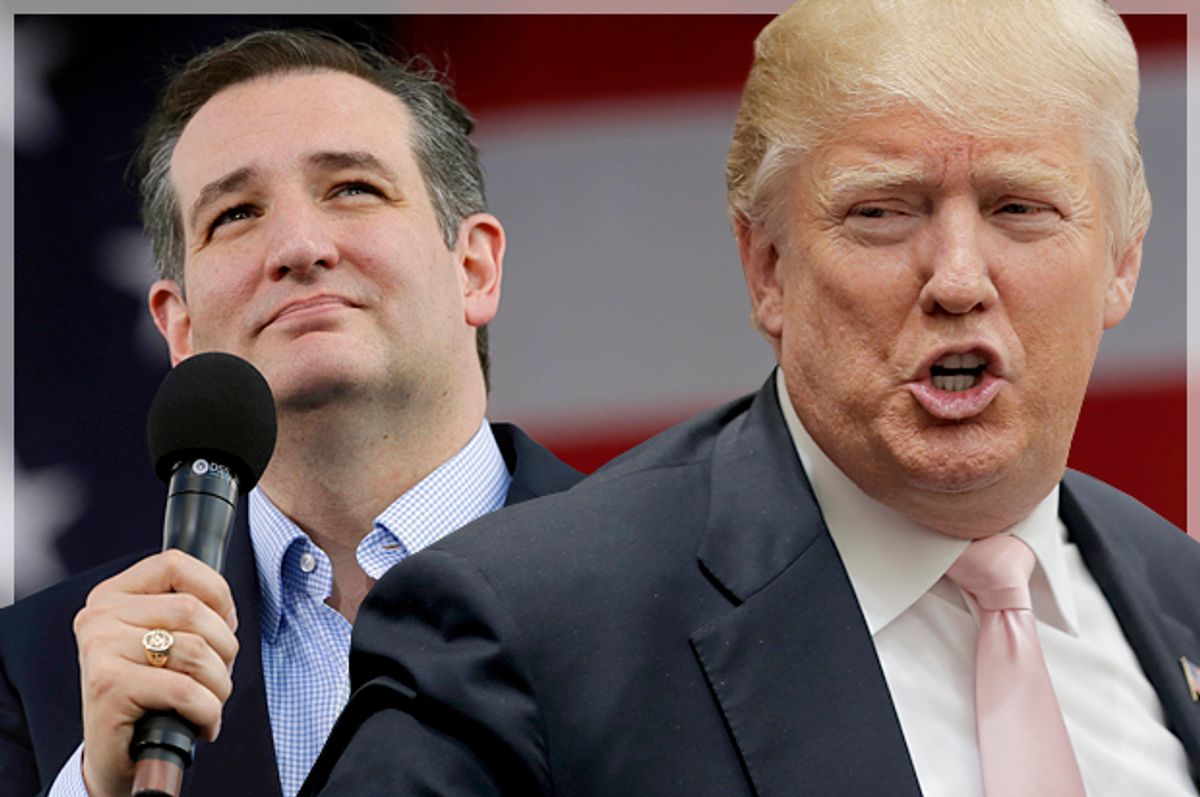New York Magazine’s Ed Kilgore wrote a smart piece over the weekend pointing out that the quality Republicans fear most in Donald Trump is his willingness to cut deals. Trump’s alleged deal-making acumen is among his chief selling points on the campaign trail – we’re all getting suckered on trade deals with Mexico and nuclear deals with Iran, but President Trump will come in, renegotiate everything, and extract every concession while giving up nothing in return. The famously gregarious Trump will also get along with everyone, even Vladimir Putin. There’s going to be so much bonhomie, you won’t believe it.
This prospect terrifies the GOP, Kilgore notes, because they don’t want a dealmaker in the Oval Office. They want someone who will administer cleansing fire to the Obama administration’s legacy. They want a president who will reflexively sign every experiment in trickle-down public policy that Paul Ryan can dream up. But Trump’s campaign keeps talking about “bipartisan” solutions and the candidate himself keeps deviating from accepted conservative orthodoxy on critical issue areas – recall that he’s the only Republican candidate who says he supports some form of government-assisted healthcare for the sick and the poor. Trump’s politics are difficult to scrutinize, but he has little grounding in conservative thought and zero loyalty to the Republican establishment, which makes it likely that he’d be open to straying from Republican orthodoxy.
Another interesting scenario to contemplate is how the Republicans might fare under the presidency of Trump’s only viable Republican challenger: Ted Cruz. When it comes to cutting deals and making compromises, the Texas senator is Trump’s opposite. Cruz will make no deals, he will accept no compromises, and he will make no effort to ingratiate himself to powerbrokers. This philosophy of his applies equally to both Democrats and Republicans – Cruz has spent healthy chunks of his time in the Senate blasting GOP leaders for being cowards who refuse to stand up for conservative principles. If he maintains this hardline stance as president, things could get a bit tricky for the GOP on domestic policy.
Let’s look at the health care example again, given the heat and drama that still attend the issue. Like pretty much every other Republican, Ted Cruz wants to “repeal and replace” the Affordable Care Act. The “repeal” part would be relatively straightforward, but coming up with an Obamacare replacement has bedeviled Republicans for over half a decade now. Cruz’s preferred solution seems to be to get rid of the ACA and replace it with basically nothing – he wants to deregulate the insurance industry and essentially leave the sick and poor to the brutalities of the free market. For some Republicans, this is a fine solution. But others are sensitive to the political realities of throwing millions of people off their health insurance and want to craft some balancing system of subsidies and regulations to replace the existing Obamacare framework. This tension has been roiling Republican politics and largely explains why the party can’t arrive at an Obamacare replacement plan – there’s no agreement on what is properly “conservative.”
Crafting any sort of Republican Obamacare replacement is going to require a good deal of intra-party compromise, but we know from experience that Ted Cruz would rather shut down the government than give up a millimeter of principle on healthcare. So what happens if President Cruz sides with the hardliners who believe there is absolutely no role for the federal government in subsidizing coverage or regulating the insurance industry?
It’s a hypothetical, of course, that presumes both that Ted Cruz can be elected president and that Republicans would actually make a good-faith effort to reform the health insurance market. But it’s interesting nonetheless that Republicans could be faced with a choice between one candidate who is too ideologically fluid to trust, and another who is too ideologically rigid to work with.

Shares